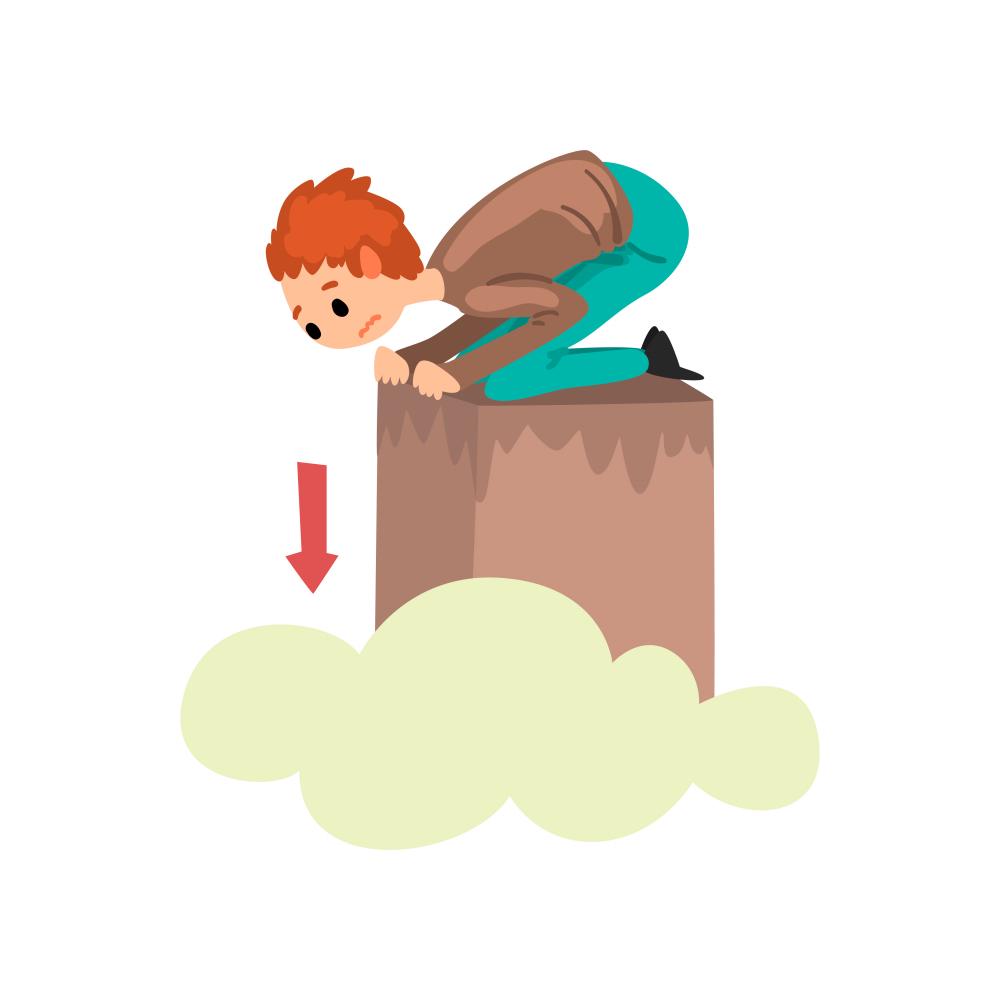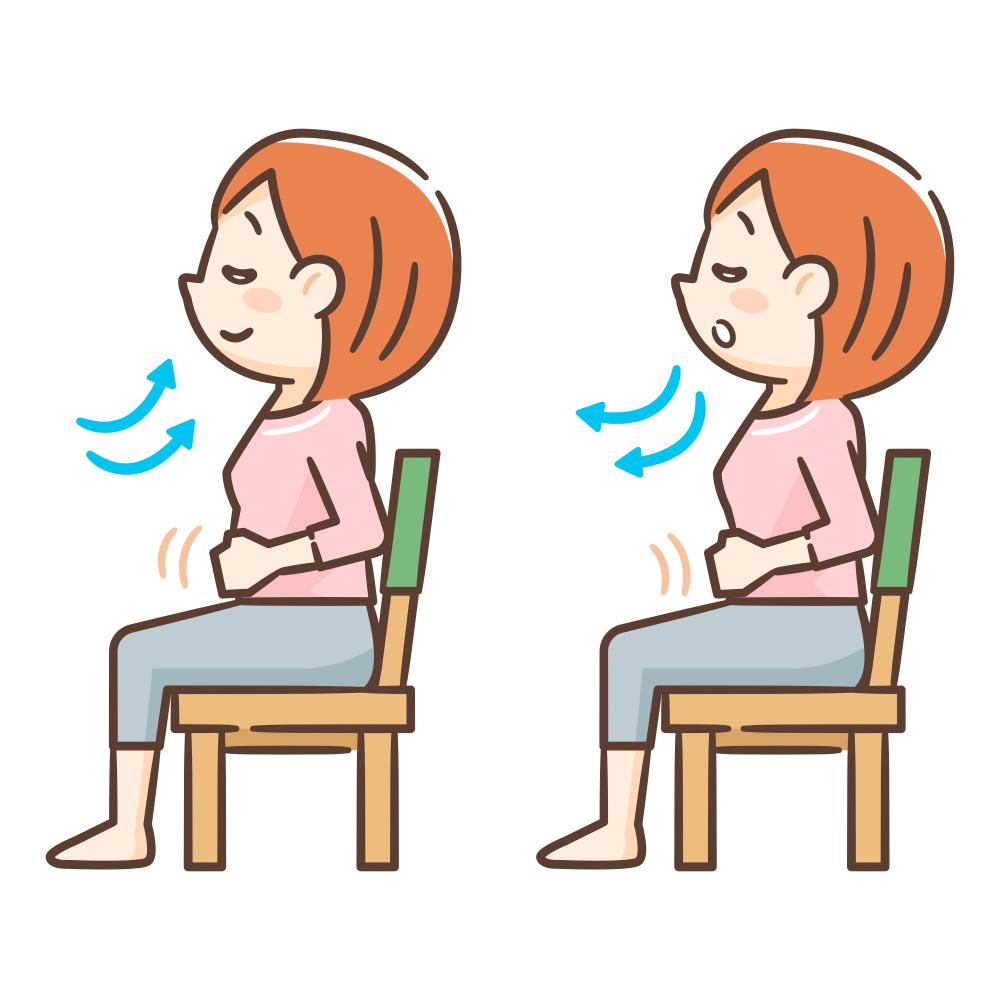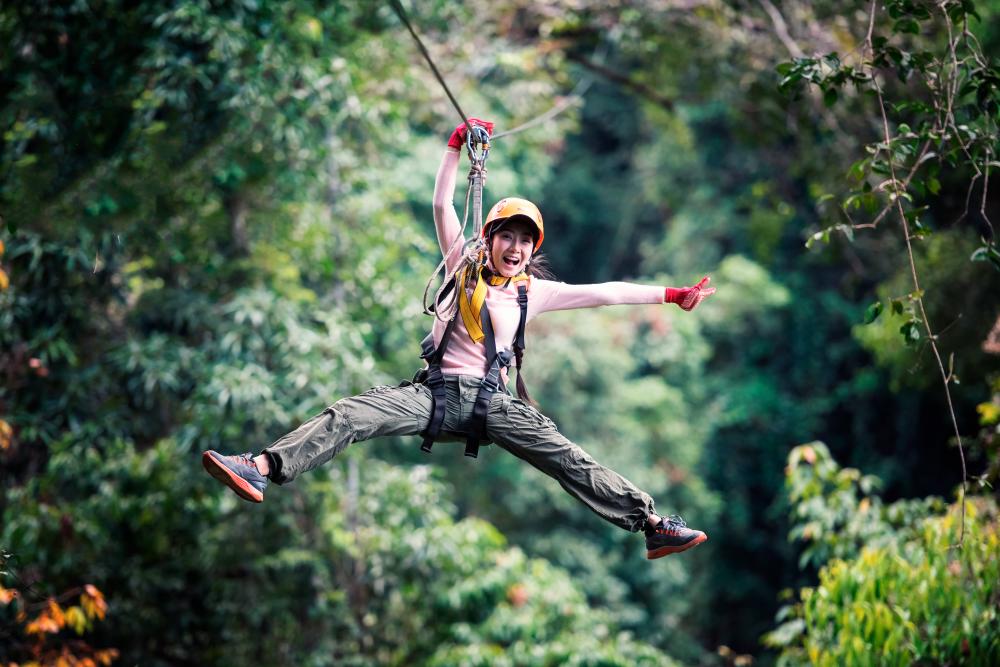IN terms of anxieties, a fear of heights is rather widespread. The fear of heights, also known as “acrophobia”, is more than a normal feeling of anxiety when at dangerous heights. Instead, acrophobia is an extreme dread of heights, even if they are not especially high. Something as easy as standing on a little step ladder or staring out the balcony from a level above ground surface might set off the dread. Acrophobia may become highly severe for the individual, interfering with daily life.
A distressing or terrifying incident like falling off the stairs might lead to a fear of heights, since the upsetting event can be associated with heights in the person’s recollections. They subsequently begin to avoid all heights, fearing that they would have a similar terrifying experience. The more these individuals ignore heights, the less chances they have to learn that heights are normally safe, and therefore the fear persists and worsens.

Prepare yourself
Whenever it relates to confronting your fears, preparation is essential. Consider being in a position that makes you afraid, and picture how you would feel in the circumstance and how you will stay calm. This approach is especially helpful if you know you will be in a fear-inducing circumstance, as understanding of what to expect minimises the probability of being panicked and agitated when the event happens. This preparation approach helps to standardise the thought of being at a height, allowing you to become more tolerant and comfortable of it.
Understand and then challenge your beliefs about heights
Although exposure treatment addresses fear, cognitive therapy activities address a person’s ideas about heights. Many people who are afraid of heights believe that something horrible will happen if they go up high. For example, you could be afraid of falling over, the building collapsing, or throwing yourself off. The purpose of cognitive therapy is to teach you that you are safe, and that your anticipated consequence from heights will not occur.

Practice relaxation techniques
Short breaths, and excessive sweating are all signs of a fear of heights, and having these sensations can amplify the anxiety and panic. Calming methods can assist to alleviate and regulate these symptoms. Deep breathing exercises are one of the simplest practises to learn, and may help you feel more calm. It’s also helpful to have something to concentrate on other than your worry.

Equip yourself with the proper gear. Click on the link.
Recognise and understand the symptoms of anxiety
The individual stress reaction is an essential aspect of normal functioning. When we identify a danger, our sympathetic nervous system activates and our bodies begin to prepare for action. Many of the unpleasant feelings of anxiety come because our bodies are attempting to pump extra blood into our muscles in order to prepare us to fight or flee. This might aggravate anxiety since the fear of falling will certainly aggravate the physical symptoms. Try to become acquainted with the physical signs of anxiety. Although we cannot simply turn off this mechanism, the anxiety reaction does not continue indefinitely. Just keep in mind that anxiety will always pass.
Gradually expose yourself to your fear
Slowly and gradually expose oneself to greater heights. You may attempt to walk a huge hill and gaze down at the distance you travelled. Keep introducing yourself to greater heights until you feel at ease. Always strive to feel as encouraged as possible during these activities. Find delight in your accomplishments and don’t let up. With time, you could find yourself doing extreme sports that involves heights to celebrate your newfound strength.

Natural therapies
Some individuals have discovered that natural remedies are particularly beneficial in overcoming phobias. Massage, ayurveda, natural medications, and even dietary treatment are all possible methods that can help improve well-being. Always do your homework and make sure your practitioners are properly trained. Contact the right body that governs the natural remedies you want to try to discover a competent therapist near you.
Acrophobia does not go away overnight. Give yourself the space and time you require to work on this challenging task without feeling rushed or judged.
Great places to overcome your fear. Click on the link.









